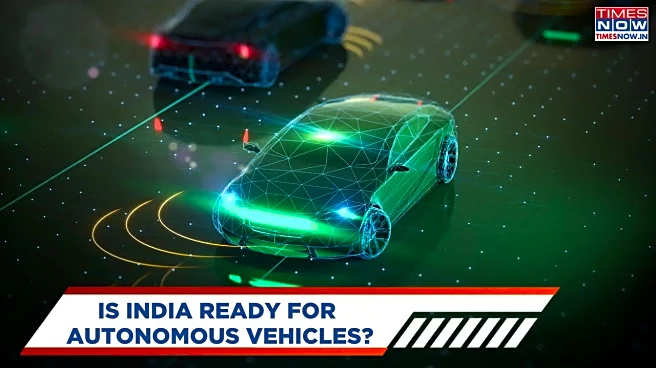At a recent event organised by the India chapter of the International Road Federation (IRF), road safety experts urged the government to draft a clear and comprehensive policy framework to guide the testing,
deployment, and operation of autonomous vehicles (AVs) in India. They emphasised that without defined regulations and Standard Operating Procedures (SOPs), India’s ambition to integrate autonomous mobility into its complex traffic ecosystem could face significant hurdles.
Speaking at the conference, P Rajalakshmi, Professor at IIT Hyderabad’s Technology Innovation Hub on Autonomous Navigation (TiHAN), highlighted that road safety remains a key challenge for the mainstream adoption of autonomous technology in India. She explained that the country’s roadmap for AVs follows a phased approach, starting with widespread use of advanced driver-assistance systems (ADAS) such as lane-keeping and adaptive cruise control by 2030, and progressing towards Level 3 and Level 4 autonomy in specific urban zones and controlled corridors by 2040.
Also Read: Kia Syros EV - What To Expect From The Upcoming Electric SUV
“As India embarks on a mission to lead in autonomous mobility by 2047, key goals include boosting market growth and developing AVs suited for India’s complex traffic conditions,” Rajalakshmi said.
She pointed out that India currently lacks a dedicated law or formal SOPs governing AV testing or operation. “The existing legal framework, primarily the Motor Vehicles Act of 1988 and the Indian Penal Code of 1960, does not directly address the unique challenges posed by autonomous technology and the issue of liability,” she said. Rajalakshmi added that a robust framework is needed to cover safety, ethics, data privacy, and accountability concerns specific to autonomous vehicles.
IRF President Emeritus K K Kapila added that while fully autonomous fleets (Level 4) are operational in certain global cities, most vehicles worldwide still operate at Level 1 or Level 2, equipped with driver-assistance features rather than full self-driving capability. “Regulatory and liability issues for autonomous driving vary widely and are still evolving. However, the uptake of Advanced Driver Assistance Systems (ADAS) in India is steadily increasing,” he noted.
Also Read: Royal Enfield Flying Flea On The Move — Check Out Its Road Presence Here
Other experts, including A Mohan Rao, Chief Scientist at CRRI, and Akhilesh Srivastava, President of IRF’s India chapter, also spoke on the occasion, collectively calling for a proactive and well-defined national strategy to ensure India’s readiness for autonomous mobility in the coming decades.
(With Inputs from PTI)


/images/ppid_a911dc6a-image-177085722614689699.webp)

/images/ppid_a911dc6a-image-177085722221079193.webp)








